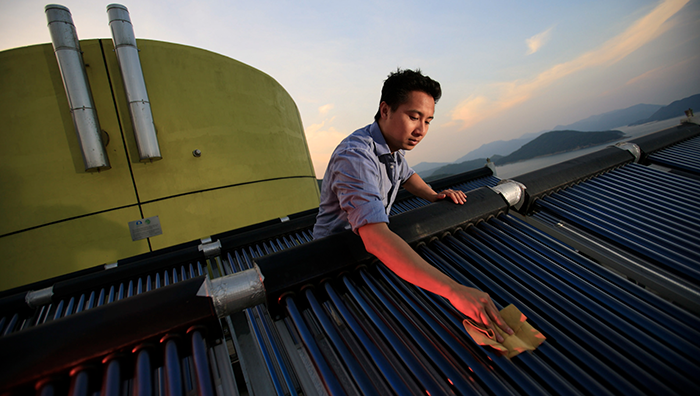China's economic and energy transition: trends and implications for climate change
Executive Summary
This paper explains the key dimensions and implications of the economic and energy system transformations currently occurring in China, away from an old development model focused on energy and coal-intensive heavy industrial development, towards a new model in which economic development is characterised by a greater share of services and high-technology manufacturing, and in which energy is supplied by a rising share of zero-emissions energy sources.
Key findings:
- The structure of the Chinese economy is changing in ways that are slowing the growth in gross domestic product (GDP) and accelerating the decline in the amount of energy required to produce a unit of GDP. This has resulted in a dramatic slowdown in China’s energy consumption growth in recent years.
- At the same time the transformation in China’s energy mix away from coal has accelerated due to supportive policies and investments in renewable and nuclear energy combined with direct regulatory controls on coal production and consumption, motivated by strategic industrial development objectives and concerns about energy security, air pollution and climate change.
- The combined result has been an historic decline in coal consumption since 2013-2014 and a plateauing of Chinese carbon dioxide emissions—a necessary condition for the decarbonisation of the global economy consistent with global climate change objectives.
- China now has an outstanding opportunity to decarbonise (strongly reduce its emissions in absolute terms) while growing its prosperity. However, institutional, administrative and political challenges and risks stand in the way of such a ‘deep decarbonisation’ scenario in China. International cooperation can help to manage those risks, while drawing on China’s strengths to accelerate global emissions reduction efforts.
Author
Fergus Green
Associate, Melbourne Sustainable Society Institute
Researcher, London School of Economics & Political Science (LSE)
